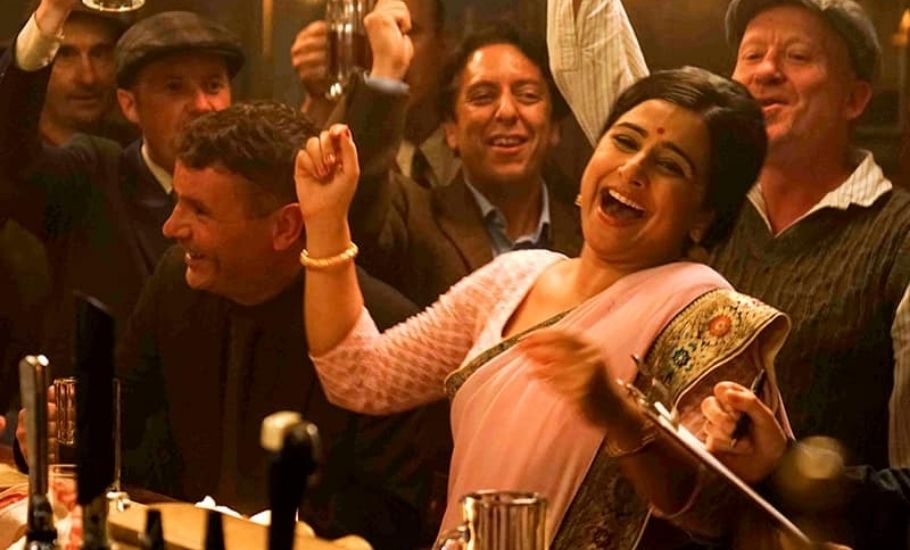
Shakuntala Devi review | Vidya Balan averts a biopic disaster
The Anu Menon-directed biopic on the world-famous Indian mathematician, Shakuntala Devi, hits the correct notes in the beginning, with Vidya Balan’s strong portrayal of the “human computer” and a feminist essence. But the film turns out to be a mess.

To review the biopic, Shakuntala Devi, I can either be a critic or a Vidya Balan admirer. I choose to be both.
The Anu Menon-directed biopic on the world-famous Indian mathematician, Shakuntala Devi, hits the correct notes in the beginning, with Vidya Balan’s strong portrayal of the “human computer” and a feminist essence.
But the film turns out to be a mess.
The movie, released on Amazon Prime Video on July 31, narrates the life of an extraordinary woman who dictated her own terms and inspired millions. It recounts Devi’s path to fame in a male-dominated world, and her frustration of being let down by the ones in her life. She is unapologetic about the decisions she made and convinced that she always wins.
The biopic revolves around the genius Devi trying to balance her ambition and fame, and her relationship with her closest family members – parents (played by Prakash Belawadi and Ipshita Chakraborty Singh), husband Paritosh Banerji (Jisshu Sengupta), daughter Anupama Banerji (Sanya Malhotra), and to some extent, son-in-law Ajay Abhaya Kumar (Amit Sadh).

It begins with Devi figuring out her newfound talent of having a way around numbers. As a child, she questions the authority of her father, who pesters her for maths shows, and her mother’s silence in front of him antagonises her. She leaves for London, far from her hometown, and paves her own path to glory, challenging even computers with her maths skills.
The unpleasant reminiscences of her childhood, however, trickles down to raising her own daughter, leading to differences between them. She asserts claims on her, often reminds her whose daughter she is, painting a profoundly narcissistic picture of the mathematician, filled with idiosyncrasies. In one scene, she calls her ex-husband (Banerji) homosexual to promote her book on homosexuality. This upsets her daughter who believes it’s a lie. Devi tries to reason saying personal stories affect people the most, and why not weave some to sell something.
It, however, ends with a so-called happy ending, with Devi reuniting with her daughter and son-in-law.
Overdramatic scenes ail the movie while comic quips from Balan fills the gaps. It seems the actor is constantly trying to hide what the movie lacks. It’s essentially a biopic and that does not leave too many rooms for creative exploration, could be one of the reasons that shields it from criticism.

In the beginning, the movie seems a perfect feminist masterpiece, only to get diluted over time. “Why do men always need women to need them?” Devi quips, in perhaps the best dialogue in the movie, as she bids farewell to her boyfriend Javier in London.
Her character couldn’t have been any bolder, and Balan excelled on the screen. Like Devi in mathematics, she aces roles that steal the show. She never fails to justify bold and strong characters. Movies like Bhool Bhoolaiya, Dirty Picture and Kahaani are a testimony to this fact. And she’s both loved and admired for this by her fans.
The movie also compares daughters who don’t want to be like their mothers: Devi finds her mother docile while her daughter, Anu, thinks she didn’t have a happy childhood because of her mother’s whims and ambitions; both willing to stay away from their respective mothers.
The movie stands as a balanced act projecting the various aspects of Devi’s life, and her battles between her ambition and relationships. But it fails to make a mark as a biopic par excellence. Though, sufficiently, Shakuntala Devi proves a one-time watch for Vidya Balan’s exceptional portrayal of the great mathematician.
Related news: Vidya Balan to play web series on Indira Gandhi

